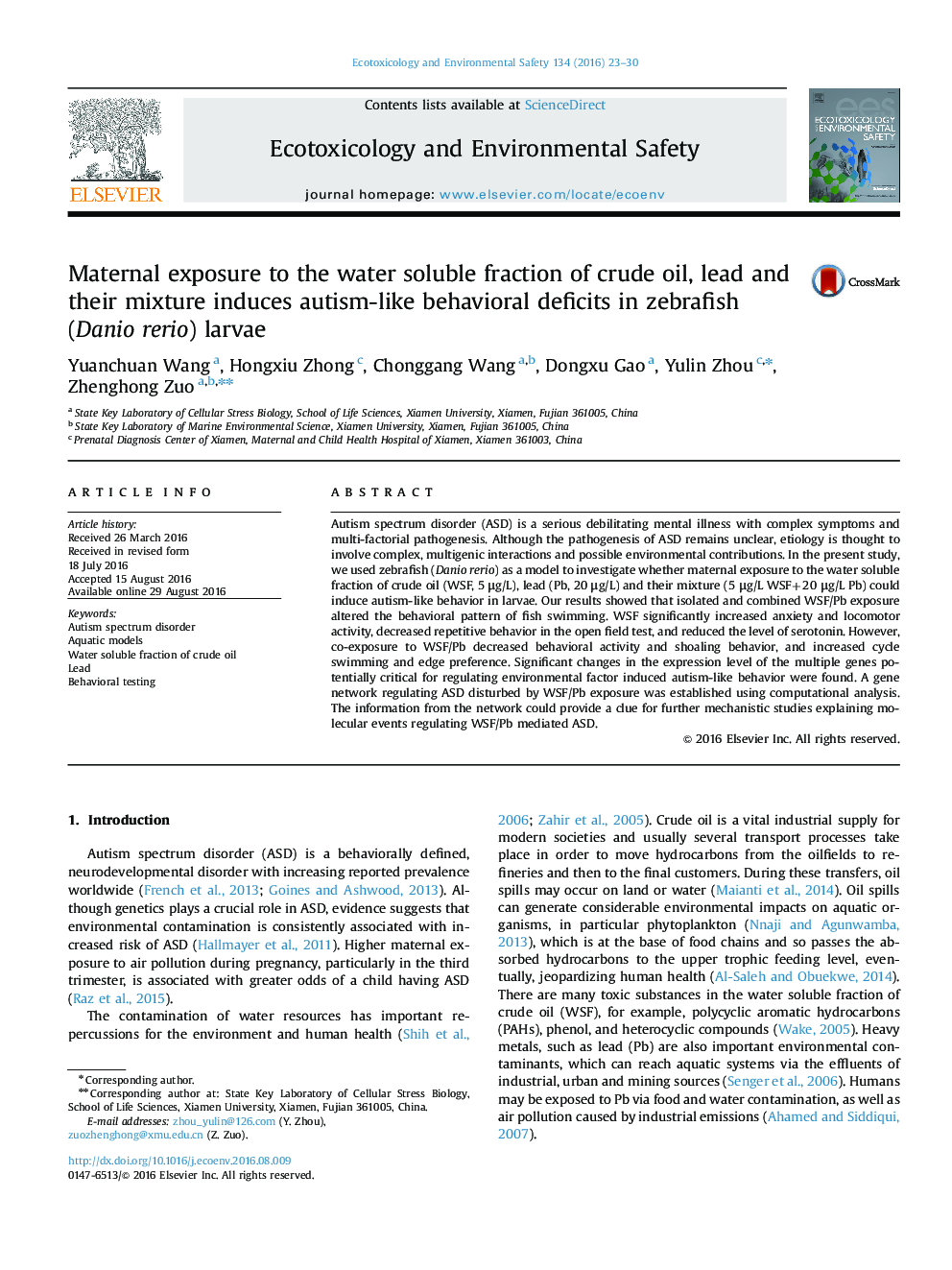| Article ID | Journal | Published Year | Pages | File Type |
|---|---|---|---|---|
| 4419127 | Ecotoxicology and Environmental Safety | 2016 | 8 Pages |
•Prenatal exposure to WSF and/or Pb could induce autism-like behavioral in larvae.•Prenatal exposure to WSF and/or Pb disturbed the expression levels of multiple genes.•A network regulating ASD development was perturbed by WSF and/or Pb was established.
Autism spectrum disorder (ASD) is a serious debilitating mental illness with complex symptoms and multi-factorial pathogenesis. Although the pathogenesis of ASD remains unclear, etiology is thought to involve complex, multigenic interactions and possible environmental contributions. In the present study, we used zebrafish (Danio rerio) as a model to investigate whether maternal exposure to the water soluble fraction of crude oil (WSF, 5 μg/L), lead (Pb, 20 μg/L) and their mixture (5 μg/L WSF+20 μg/L Pb) could induce autism-like behavior in larvae. Our results showed that isolated and combined WSF/Pb exposure altered the behavioral pattern of fish swimming. WSF significantly increased anxiety and locomotor activity, decreased repetitive behavior in the open field test, and reduced the level of serotonin. However, co-exposure to WSF/Pb decreased behavioral activity and shoaling behavior, and increased cycle swimming and edge preference. Significant changes in the expression level of the multiple genes potentially critical for regulating environmental factor induced autism-like behavior were found. A gene network regulating ASD disturbed by WSF/Pb exposure was established using computational analysis. The information from the network could provide a clue for further mechanistic studies explaining molecular events regulating WSF/Pb mediated ASD.
